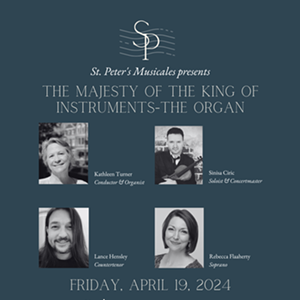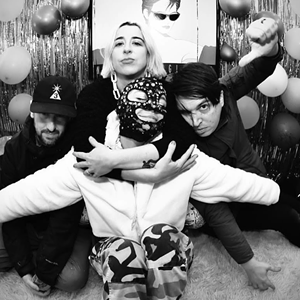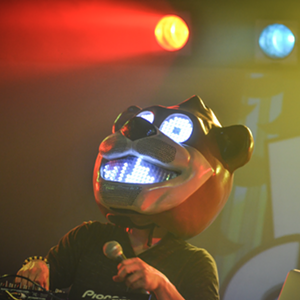Our position is not anti-music
[
{
"name": "Air - MedRect Combo - Inline Content 1",
"component": "14680855",
"insertPoint": "7",
"requiredCountToDisplay": "5",
"parentWrapperClass": "fdn-ads-inline-content-block"
},{
"name": "Air - MedRect Combo - Inline Content 2",
"component": "14680856",
"insertPoint": "15",
"requiredCountToDisplay": "9",
"parentWrapperClass": "fdn-ads-inline-content-block"
},{
"name": "Air - SVP - Leaderboard - Inline Content - 2",
"component": "16852291",
"insertPoint": "10",
"requiredCountToDisplay": "10",
"parentWrapperClass": "fdn-ads-inline-content-block"
},{
"name": "Air - SVP - Leaderboard - Inline Content - 3",
"component": "16852292",
"insertPoint": "20",
"requiredCountToDisplay": "18",
"parentWrapperClass": "fdn-ads-inline-content-block"
},{
"name": "Air - SVP - Leaderboard - Inline Content - 1",
"component": "16852290",
"insertPoint": "25",
"requiredCountToDisplay": "22",
"parentWrapperClass": "fdn-ads-inline-content-block"
}
]
Although its hard to imagine, there was a time when the legal drinking age in the City of Savannah was 18.
However, when the Georgia raised that age restriction to 21, it did more than merely make it difficult for teenagers to procure liquor by the drink throughout the Peach State. It made it much more difficult for teenagers to enjoy singer/songwriters, bands and standup comics.
Thats because the overwhelming majority of venues that book such types of live entertainment are nightclubs of some sort. Call them what you will: saloons, taverns, clubs, watering holes, pubs, holes-in-the-wall... Theyre all basically the same thing.
Theyre bars.
The majority of their sales are made up through beer, wine and spirits. Sure, there are places that exist as either strictly (or primarily) concert venues, presenting live entertainment without automatically slinging drinks to the crowd, but those are usually what are referred to in the concert industry as hard ticket destinations.
Thats to say that theyre not designed to attract casual listeners who are looking for a night out on the town and just might fancy catching a band on the spur of the moment.
Those venues usually book nationally-known talent (at understandably hefty prices), advertise the shows for weeks or months in advance, and do their best to attract a crowd of sincere, devoted fans who are there to show up, sit still and listen to the show without too much distraction.
At the present time, we dont really have such a place operating full-time in our area, unless you count Randy Woods Pickin Parlor in Bloomingdale.
No, those sort of establishments are few and far between in these parts and for good reason. Because, as any experienced clubowner will tell you, its virtually impossible to pay the bills that way.
Thats why movie theaters sell fifteen cents worth of popcorn and gold paint for $5.25, and why music clubs from Austin to Australia worry more about keeping their beer distributors happy than whether or not they treat the touring bands that pass through with the respect they deserve.
So why on earth would so many communities around the country allow underage patrons into businesses whose primary function is to sell stuff those patrons arent legally allowed to buy?
Because they do, you know.
They let em in. All over the country and at a number of venues in the state of Georgia they take their cover charge (often higher than the one paid by those of-age, to offset the money minors assumably wont be spending on alcoholic drinks), stamp their hands (or give them hospital-type bracelets or some other noticeable mark), and make a good-faith effort to keep them set apart from those who can imbibe freely.
This is handled in a variety of ways. one legendary Atlanta punk bar actually put up a chain-link fence down the middle of the room to prevent kids from even approaching the bar.
Here in Savannah, no ones come up with a solution nearly that hardcore yet, but for over a decade, any business whose primary source of income is derived from the sale of alcoholic beverages to adults has legally been able to admit minors if they so choose.
The caveat? The business has to be providing live entertainment at the time, and that is legally defined as (one or more) live performing artists, such as a musician, singer or comedian who is employed by the establishment to perform, (and) is actually performing on the premises.
Furthermore, anyone under 21 who is on the premises but is not employed there must be clearly identified as such by a wrist bracelet or other recognizable mark or device.
This seems clear enough. However, over the past few years, a growing number of concerned parents, citizens, business owners and local government officials have loudly questioned the rationale behind this exception to the Georgia law which states that those under 21 are not to be allowed into bars and clubs where alcohol is the main source of income regardless of what sort of entertainment might be taking place on the premises.
They feel that despite a lack of compelling statistical evidence to show that minors are regularly being served with impugnity in Savannah its simply foolish to sanction young people hanging out in an environment that is filled with temptation.
When the age was raised back up to 21, says City Director of Revenue Buddy Clay, the clubowners were concerned about losing their revenue. That was the main reason City Council crafted this ordinance in the first place.
But the club scene in town today is very different from then. Now we have these huge complexes they fill up with underage people. They market the clubs to them, and charge exorbitant cover fees, Clay says.
Then at the end of the night, you have hundreds of young kids on the streets after curfew, sometimes in residential areas, he says. It begs the question: If you cant serve them, why would you want them? How does this contribute to street crime like muggings, break-ins and vandalism?
There seems to be little compelling evidence that a considerable number of such late-night crimes in the downtown area are perpetrated by minors, let alone those whove been out club-hopping. What does exist is anecdotal evidence, and what Clay terms common sense.
I hear complaints from the community. They hear stories about kids getting served, he says. The law is very clear, and I personally dont like the City to be in the position of issuing licenses putting minors in harms way. Some would see that as making us co-conspirators.
To Mayor Otis Johnson, this issue is fairly cut and dry.
I agree with Buddy Clay. I dont want to tweak the ordinance, I want to have it follow the law, Mayor Johnson says.
The law says you must be 21 to be in a place that makes its living serving alcohol. I sympathize with those under 21, he says.
If you wanna know my personal opinion, I feel if you can serve in the military and get killed in Iraq at 18, you should be able to drink at 18 as well. But my opinion doesnt count, says the mayor. If an incident occurs where some young person is hurt because some bar doesnt check properly or do their job, then everyone is going to be furious at council and especially me for not doing something to change this when we had the chance.
Chief of Police Dan Flynn, a longtime supporter of eliminating this provision, echoes these sentiments.
My position on the issue of underage drinking is, and has got to be, based on the perspective of public safety, Chief Flynn says. Savannah citizens have been adamant that allowing kids in alcohol establishments clearly creates an opportunity for them to drink. Certainly it is important for our young people to enjoy and appreciate music and for adults to encourage it. Our position on underage drinking is neither anti-music, anti-culture, nor anti-business; it is merely to promote public safety.
Flynn says that to the best of his knowledge there is neither a substantial nor a growing problem with underage drinking in local live music venues.
It is a positive thing to facilitate the ability of young people to attend and enjoy musical performances, whatever their taste in music... It is not the mode of entertainment, but rather the environment of a bar or lounge that is troublesome.
However, Susanne Guest, owner of The Jinx, a popular live rock music venue on Congress Street (and one of the few clubs in town to regularly allow minors) says she feels that this whole issue is being blown out of proportion.
We have never been cited, or had a problem with underage drinking here, and we never will, she says. At the most, well have less than 20 minors in here on a busy night, and its easy to monitor them. If we see them try to grab somebody elses drink, we kick them out. Its that simple. But people should remember that underage drinking doesnt just happen at clubs. Some of these kids have been drinking at home before they ever come out at night because they know they cant get served.
Guest says that the two main problems she sees do not come from actual live music venues such as hers, but from dance-oriented discos who openly flout the law by allowing minors in to hear DJs spin records something the ordinance was designed to prohibit. The Jinx is strictly 21+ on such nights.
I do find that kind of annoying, because Im being responsible about it, she says. "Why do I make a point to be in compliance when everyone else gets away with it? I know the police are aware of it, and its not the most important thing on their docket, but the loopholes these clubs are using are so flimsy.
For his part at least, Mayor Johnson hopes the public will become involved and attend the upcoming meeting on this issue and voice their suggestions and comments. But he also hopes that if the ordinance is removed, things may actually improve for music-loving minors.
This could open up an entrepreneurial opportunity for someone to open up a club specifically for teens, without alcohol, he says.
The Citys meeting takes place Wed., November 2, at 6 p.m. in the Civic Center Ballroom. It is open to the public.
However, when the Georgia raised that age restriction to 21, it did more than merely make it difficult for teenagers to procure liquor by the drink throughout the Peach State. It made it much more difficult for teenagers to enjoy singer/songwriters, bands and standup comics.
Thats because the overwhelming majority of venues that book such types of live entertainment are nightclubs of some sort. Call them what you will: saloons, taverns, clubs, watering holes, pubs, holes-in-the-wall... Theyre all basically the same thing.
Theyre bars.
The majority of their sales are made up through beer, wine and spirits. Sure, there are places that exist as either strictly (or primarily) concert venues, presenting live entertainment without automatically slinging drinks to the crowd, but those are usually what are referred to in the concert industry as hard ticket destinations.
Thats to say that theyre not designed to attract casual listeners who are looking for a night out on the town and just might fancy catching a band on the spur of the moment.
Those venues usually book nationally-known talent (at understandably hefty prices), advertise the shows for weeks or months in advance, and do their best to attract a crowd of sincere, devoted fans who are there to show up, sit still and listen to the show without too much distraction.
At the present time, we dont really have such a place operating full-time in our area, unless you count Randy Woods Pickin Parlor in Bloomingdale.
No, those sort of establishments are few and far between in these parts and for good reason. Because, as any experienced clubowner will tell you, its virtually impossible to pay the bills that way.
Thats why movie theaters sell fifteen cents worth of popcorn and gold paint for $5.25, and why music clubs from Austin to Australia worry more about keeping their beer distributors happy than whether or not they treat the touring bands that pass through with the respect they deserve.
So why on earth would so many communities around the country allow underage patrons into businesses whose primary function is to sell stuff those patrons arent legally allowed to buy?
Because they do, you know.
They let em in. All over the country and at a number of venues in the state of Georgia they take their cover charge (often higher than the one paid by those of-age, to offset the money minors assumably wont be spending on alcoholic drinks), stamp their hands (or give them hospital-type bracelets or some other noticeable mark), and make a good-faith effort to keep them set apart from those who can imbibe freely.
This is handled in a variety of ways. one legendary Atlanta punk bar actually put up a chain-link fence down the middle of the room to prevent kids from even approaching the bar.
Here in Savannah, no ones come up with a solution nearly that hardcore yet, but for over a decade, any business whose primary source of income is derived from the sale of alcoholic beverages to adults has legally been able to admit minors if they so choose.
The caveat? The business has to be providing live entertainment at the time, and that is legally defined as (one or more) live performing artists, such as a musician, singer or comedian who is employed by the establishment to perform, (and) is actually performing on the premises.
Furthermore, anyone under 21 who is on the premises but is not employed there must be clearly identified as such by a wrist bracelet or other recognizable mark or device.
This seems clear enough. However, over the past few years, a growing number of concerned parents, citizens, business owners and local government officials have loudly questioned the rationale behind this exception to the Georgia law which states that those under 21 are not to be allowed into bars and clubs where alcohol is the main source of income regardless of what sort of entertainment might be taking place on the premises.
They feel that despite a lack of compelling statistical evidence to show that minors are regularly being served with impugnity in Savannah its simply foolish to sanction young people hanging out in an environment that is filled with temptation.
When the age was raised back up to 21, says City Director of Revenue Buddy Clay, the clubowners were concerned about losing their revenue. That was the main reason City Council crafted this ordinance in the first place.
But the club scene in town today is very different from then. Now we have these huge complexes they fill up with underage people. They market the clubs to them, and charge exorbitant cover fees, Clay says.
Then at the end of the night, you have hundreds of young kids on the streets after curfew, sometimes in residential areas, he says. It begs the question: If you cant serve them, why would you want them? How does this contribute to street crime like muggings, break-ins and vandalism?
There seems to be little compelling evidence that a considerable number of such late-night crimes in the downtown area are perpetrated by minors, let alone those whove been out club-hopping. What does exist is anecdotal evidence, and what Clay terms common sense.
I hear complaints from the community. They hear stories about kids getting served, he says. The law is very clear, and I personally dont like the City to be in the position of issuing licenses putting minors in harms way. Some would see that as making us co-conspirators.
To Mayor Otis Johnson, this issue is fairly cut and dry.
I agree with Buddy Clay. I dont want to tweak the ordinance, I want to have it follow the law, Mayor Johnson says.
The law says you must be 21 to be in a place that makes its living serving alcohol. I sympathize with those under 21, he says.
If you wanna know my personal opinion, I feel if you can serve in the military and get killed in Iraq at 18, you should be able to drink at 18 as well. But my opinion doesnt count, says the mayor. If an incident occurs where some young person is hurt because some bar doesnt check properly or do their job, then everyone is going to be furious at council and especially me for not doing something to change this when we had the chance.
Chief of Police Dan Flynn, a longtime supporter of eliminating this provision, echoes these sentiments.
My position on the issue of underage drinking is, and has got to be, based on the perspective of public safety, Chief Flynn says. Savannah citizens have been adamant that allowing kids in alcohol establishments clearly creates an opportunity for them to drink. Certainly it is important for our young people to enjoy and appreciate music and for adults to encourage it. Our position on underage drinking is neither anti-music, anti-culture, nor anti-business; it is merely to promote public safety.
Flynn says that to the best of his knowledge there is neither a substantial nor a growing problem with underage drinking in local live music venues.
It is a positive thing to facilitate the ability of young people to attend and enjoy musical performances, whatever their taste in music... It is not the mode of entertainment, but rather the environment of a bar or lounge that is troublesome.
However, Susanne Guest, owner of The Jinx, a popular live rock music venue on Congress Street (and one of the few clubs in town to regularly allow minors) says she feels that this whole issue is being blown out of proportion.
We have never been cited, or had a problem with underage drinking here, and we never will, she says. At the most, well have less than 20 minors in here on a busy night, and its easy to monitor them. If we see them try to grab somebody elses drink, we kick them out. Its that simple. But people should remember that underage drinking doesnt just happen at clubs. Some of these kids have been drinking at home before they ever come out at night because they know they cant get served.
Guest says that the two main problems she sees do not come from actual live music venues such as hers, but from dance-oriented discos who openly flout the law by allowing minors in to hear DJs spin records something the ordinance was designed to prohibit. The Jinx is strictly 21+ on such nights.
I do find that kind of annoying, because Im being responsible about it, she says. "Why do I make a point to be in compliance when everyone else gets away with it? I know the police are aware of it, and its not the most important thing on their docket, but the loopholes these clubs are using are so flimsy.
For his part at least, Mayor Johnson hopes the public will become involved and attend the upcoming meeting on this issue and voice their suggestions and comments. But he also hopes that if the ordinance is removed, things may actually improve for music-loving minors.
This could open up an entrepreneurial opportunity for someone to open up a club specifically for teens, without alcohol, he says.
The Citys meeting takes place Wed., November 2, at 6 p.m. in the Civic Center Ballroom. It is open to the public.
























